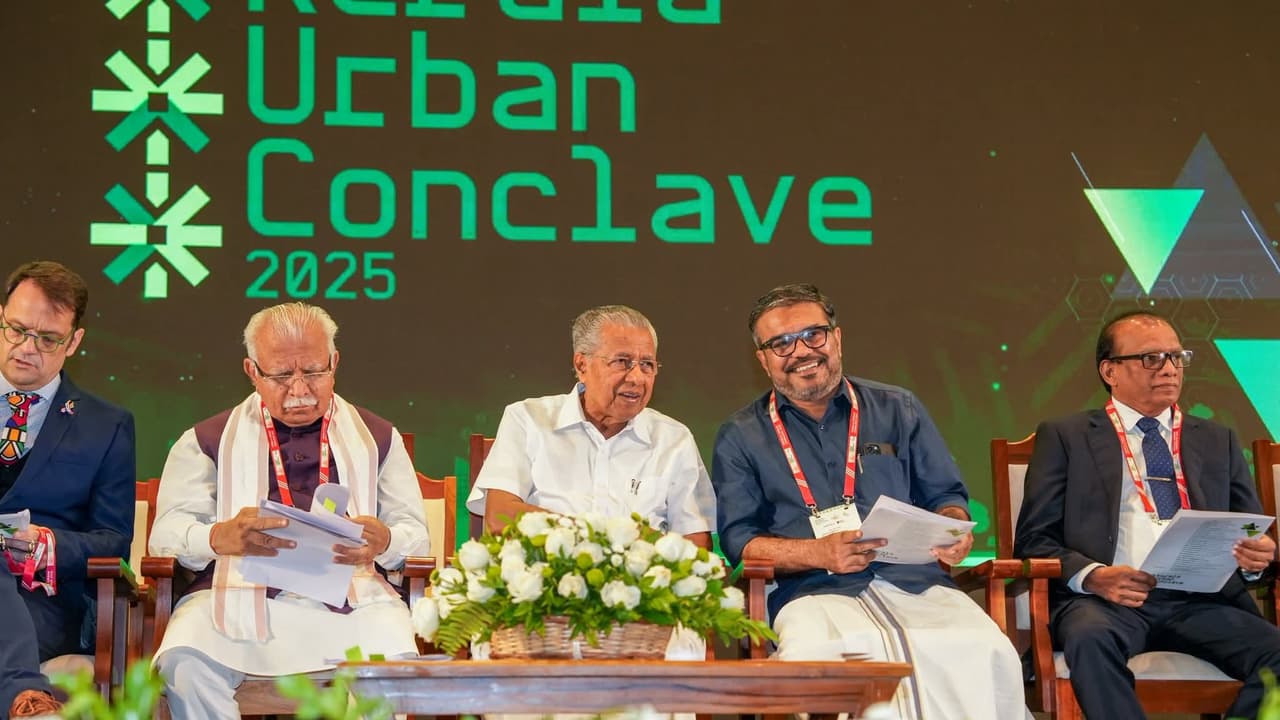Facing escalating climate change impacts, South African province seeks to learn from Kerala’s experience managing a tropical climate. The partnership also extends to governance reform and cultural exchange projects.
Thiruvananthapuram: Kerala’s efforts in climate-resilient urban planning have caught international attention, with South Africa’s KwaZulu-Natal province set to formalise an agreement for knowledge exchange. Martin Meyer, who oversees Public Works and Infrastructure in KwaZulu-Natal, told The Hindu during the Kerala Urban Conclave in Kochi that his province wants to learn from Kerala’s innovative practices. He cited the State’s use of mangrove forests as natural buffers against floods as an example of solutions South Africa could adapt. Meyer praised Kerala’s strong local governance and professional administrative system, contrasting it with South Africa’s more centralised and politically entangled structure. “What is impressive here is how governance is brought closer to people and how fresh ideas are applied to persistent challenges,” he said.
KwaZulu-Natal has been the hardest hit by climate change among South Africa’s nine provinces. In just four years, it has endured floods, fires and even tornadoes—extreme weather events once unknown in the region. “We are moving from a subtropical to a tropical climate. India and Kerala have decades of experience dealing with that reality, and we want to learn from it,” Meyer said. The resource crunch caused by repeated disasters has further underscored the urgency of such collaboration. According to Meyer, funds meant for new schools, clinics and hospitals have been diverted to repair damaged infrastructure. “We are constantly fixing what has been destroyed, which means development is on hold,” he admitted.
Meyer also spoke about governance reforms underway in his province, including his fight against what he called the “construction mafia” — groups that stalled projects by demanding cuts from budgets. He said 120 arrests in the first six months of his tenure had restored stability, and projects have since continued without disruption. Beyond infrastructure, KwaZulu-Natal is also working with the National Gandhi Museum to restore a historic castle near Meyer’s office into a museum on India–South Africa solidarity. The site, once home to Mahatma Gandhi, was seized under apartheid when Indian residents were forcibly displaced in the 1950s. The plan is to showcase the shared struggle of Indian and Black South Africans against racial oppression.
Kerala Urban Conclave to Conclude on Saturday
The Kerala Urban Conclave 2025, a first-of-its-kind initiative to chart the state’s urban future, was held under the theme “Aspiring Cities, Thriving Communities.” It brought together political leaders, policy experts, and international delegates to lay the groundwork for Kerala’s first comprehensive urban policy. Chief Minister Pinarayi Vijayan, who inaugurated the conclave, underlined that Kerala’s urban growth is outpacing the national average and must be approached with long-term planning. He noted that with over 90% of the state’s population projected to be urban by 2035, Kerala needs a clear roadmap for sustainable development.
Local Self-Governments Minister MB Rajesh said the conclave marked the first time the state had attempted such a broad, structured discussion on urbanisation. Union Housing and Urban Affairs Minister Manohar Lal Khattar was the chief guest, while foreign participation included Sri Lanka’s Urban Development Minister Anuradha Karunathilake and Martin Meyer from South Africa’s KwaZulu-Natal province. Across 36 sessions, nearly 300 speakers discussed a wide range of themes: infrastructure, climate resilience, governance, technology, and community-driven development. Highlights included high-level political forums, plenary sessions, roundtable dialogues, and an assembly of mayors and municipal chairpersons from across Kerala.
